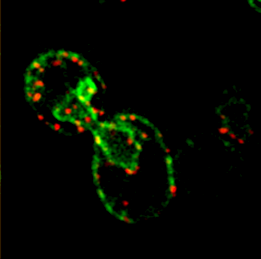
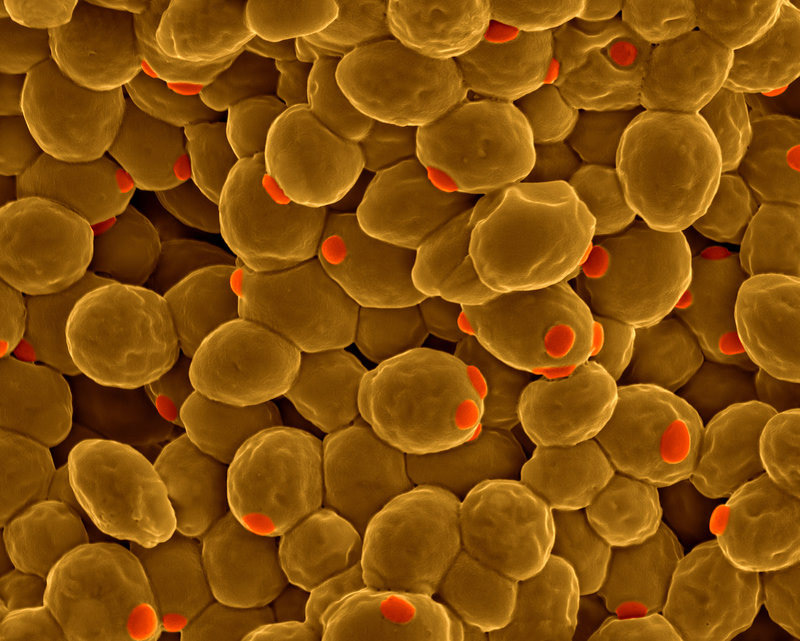

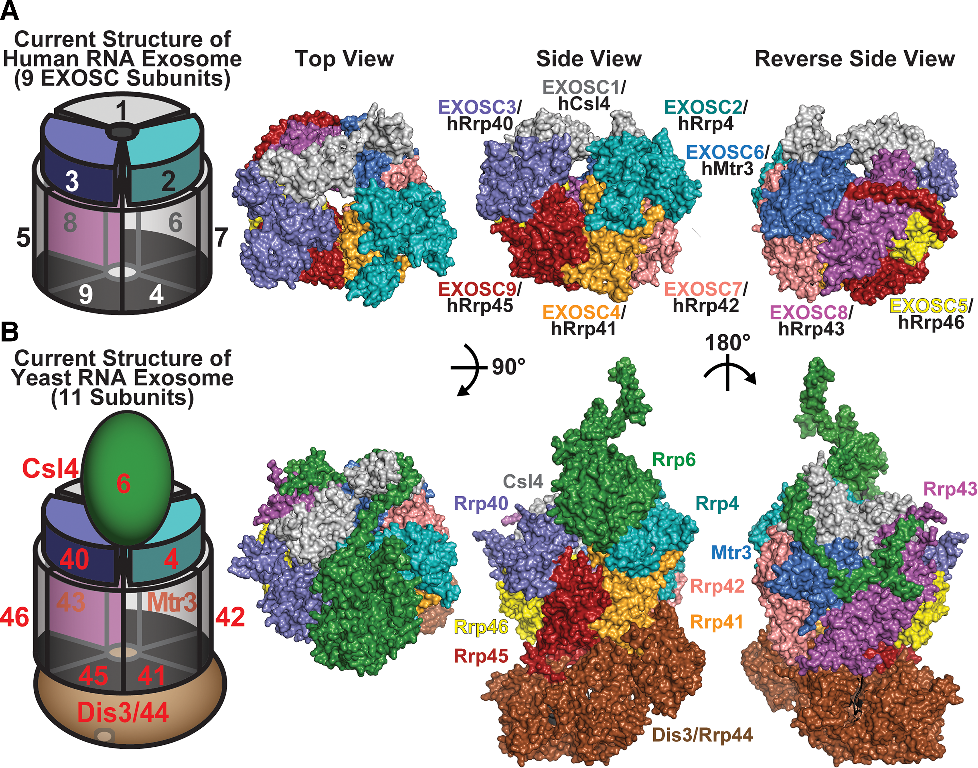
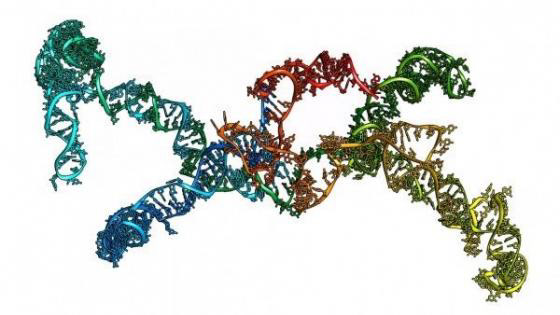
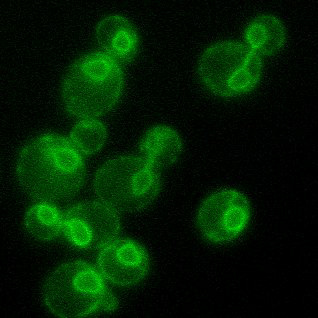
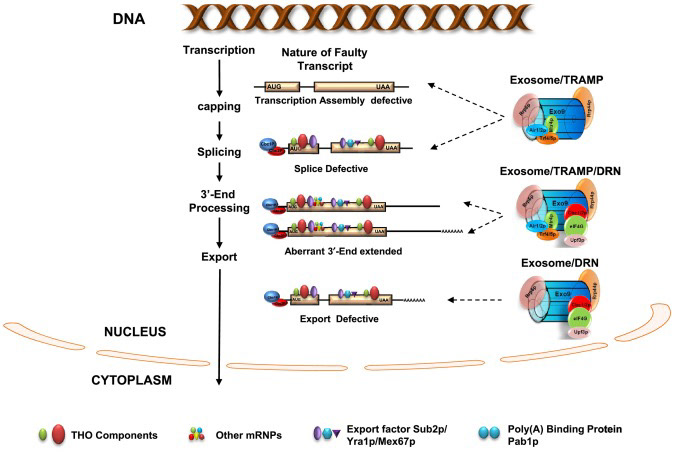
All Messenger RNAs (mRNAs) are produced in the cell nucleus, when RNA Polymerase II protein transcribes a protein coding gene. The nascent mRNA thus formed undergo several processing and maturation events in the nucleus. Several years ago we and others have shown that this mRNA biogenesis is not accurate. The bad mRNAs, which are generated by the erroneous mRNA biogenesis processes are thus promptly detected and degraded by a RNA decay machine called The Nuclear Exosome. This degradation machinery is present in all kinds of organisms, starting from simplest eukaryote baker's yeast to the most complex organism human. We are actively working on how the the exosome detects a bad mRNA in the vast background good and functional mRNAs.
In addition, several years ago we also found that the nuclear exosome using a novel mechanism controls the repertoire of a subset of normal and functional mRNAs in the cell, thereby regulates several crucial cellular events. A large part of our efforts are also invested in understanding the molecular insight into the these gene regulatory circuits, which governs those important cellular events. These events include the ability of the cells to adapt in the low nutrients during nutritional stress, redox and thermal stress that unfolds proteins in the endoplasmic reticulum or regulation of telomere length. We are very excited to go into the bottom of these mechanisms since many of these cellular events are implicated in various human disease states. We hope that the knowledge unveiled from our studies will help doctors to develop possible therapies for these diseases.